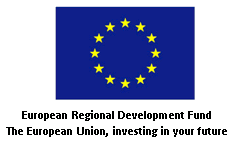About the project
PROTTEC was launched in March 2009 and is a 2-year cross border project funded by the EU under INTERREG IVA. The project involves two partners from Brittany, France (Bretagne Valorisation and Ifremer) and three from southern England (University of Plymouth, University of Exeter and Marine South East). Geographically, the project covers Brittany, South East and South West England.
The project comprises four Work Packages, WP1 - WP4.
WP1, lead by University of Plymouth, will determine the current situation with regards to regional strategies, partnership capabilities, technology transfer and innovation across the regions. This will include an analysis of innovation objectives relating to HEIs, Public Research Organisations (PROs), business developers and local and regional bodies. Identification of these objectives will help develop a core set of targets for cross border activities within later work packages. An in-depth analysis will be conducted, exploring the benefits and impacts of regional innovation and knowledge transfer activities and the extent to which they meet the challenges of the national and regional strategies.
WP 2, lead by University of Exeter, will build on the information and data gathered in WP1 by developing a best-practice portfolio of activities, identifying in particular those activities which can be piloted cross-border and therefore contribute to regional and inter-regional innovation and economic growth. Discussion with industry should help to develop a programme of 'demand led' activities. Within the work package, cross-border initiatives will be examined and developed and pilot projects run to test cross border innovation activities. Detailed methodologies for the training of technology transfer officers and the piloting of culture change initiatives will be identified.
WP3, lead by Bretagne Valorisation, will look at Strengthening Human Capabilities. The prime objective is to enhance the skills of people involved in innovation, entrepreneurship and the commercialisation of intellectual property. Seminars, training and summer schools will be used to disseminate the findings and strategies developed in WP2 to students and researchers to allow them to make the best use of their applied research. The partners will engage with technology transfer officers to provided them with the knowledge and tools to facilitate increasing the effectiveness of innovation projects.
WP4, lead by Ifremer, has two objectives
- To build on ideas and approaches developed in preceding work packages to develop a systematic approach to integrating PROs into regional innovative chains. This will involve reinforcing the relationships between PROs and regional innovation actors (government departments, Regional Development Agencies, technology transfer agencies etc) and increasing collaboration between PROs through developing better technology transfer strategies. At a practical level, 10 technological projects will have been identified by the project partners and from these, 3 will be taken to maturity.
- An exploration of Joint Industry Projects (JIPs), lead by Marine South East, with the objective of improving the efficiency of JIPs. This will entail gaining an understanding of the kinds of technology transfer that can be achieved through JIPs, which generally involve and are financed by groups of (usually) large companies, and how the structure of JIPs - in terms of participating companies, research organisations and facilitators - affects the outcomes. This will help to identify the structure required to achieve optimal performance. The role and funding of JIP facilitators will also be examined.




